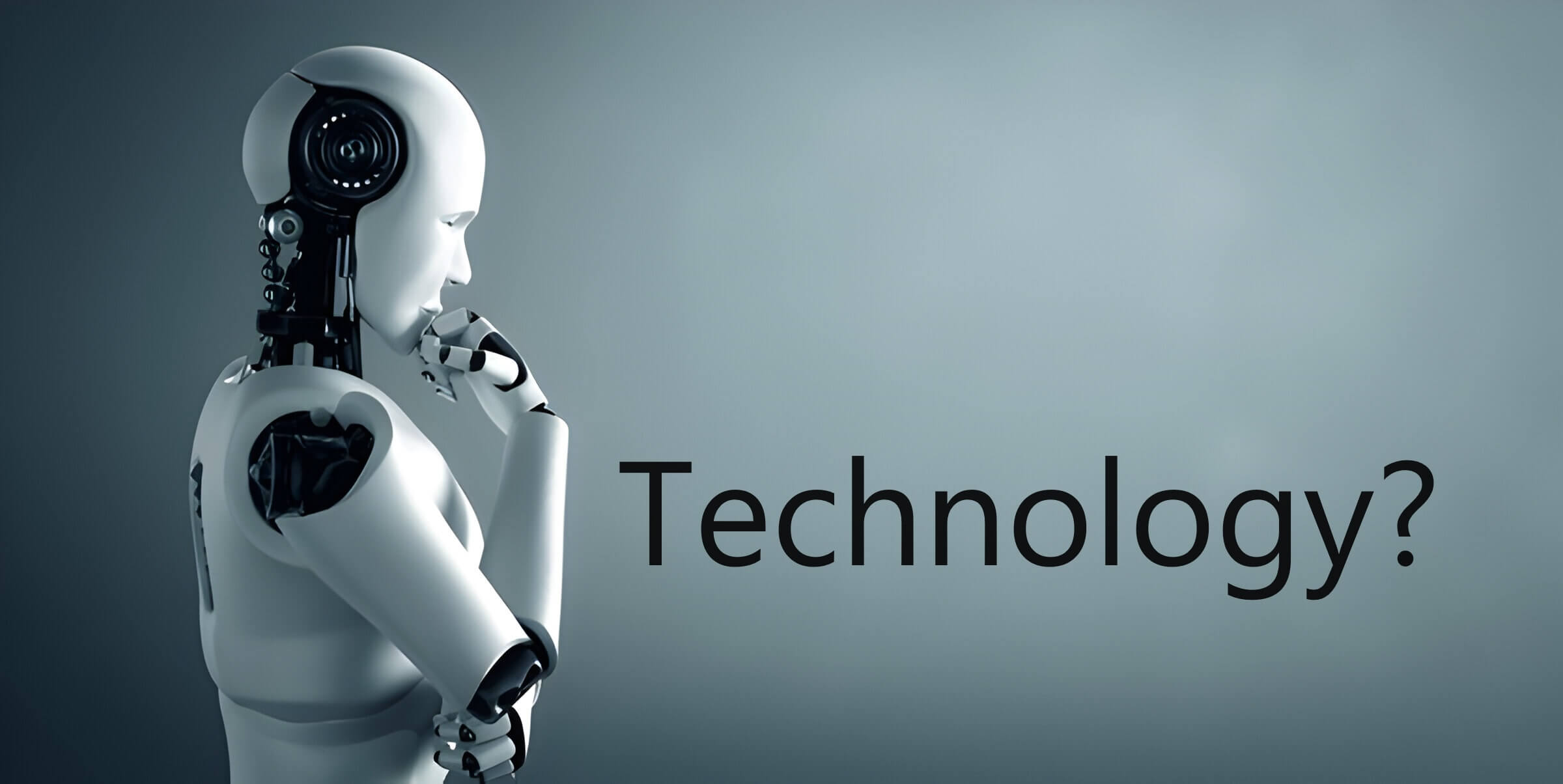Technology has driven human progress throughout history, transforming our world significantly. From ancient inventions to modern innovations, it has expanded our capabilities and reshaped societies. As we approach groundbreaking technological advances, it’s crucial to examine their potential impacts on our future.
Defining Technology (More Than Just Gadgets and Gizmos)
Technology encompasses far more than just the latest smartphones or cutting-edge gadgets. At its core, technology refers to the application of scientific knowledge for practical purposes, often to solve problems or improve human life. This broad definition includes everything from simple tools like a hammer to complex systems like artificial intelligence.
Throughout history, technological advancements have shaped societies and driven progress. From the invention of the wheel to the development of the internet, each innovation has transformed how we live, work, and interact. Technology can be categorized into various types, including information technology, biotechnology, nanotechnology, and energy technology, among others.
When we consider what technology means, it’s crucial to understand its multifaceted nature. It’s not just about creating new devices; it’s about developing processes, techniques, and systems that enhance our capabilities and efficiency. From medicine to agriculture, transportation to communication, technology permeates every aspect of modern life.
As we continue to push the boundaries of scientific understanding, the definition of technology evolves. Today’s technological landscape includes emerging fields like quantum computing, gene editing, and renewable energy solutions, showcasing the ever-expanding scope of human innovation.
The Evolution of Technology (From Stone Tools to Artificial Intelligence)
The journey of technological progress has been nothing short of remarkable, spanning from the creation of simple stone tools to the development of sophisticated artificial intelligence. This evolution has been marked by several pivotal moments, each propelling humanity forward in significant ways.
The Industrial Revolution of the 18th and 19th centuries marked a turning point, introducing mechanization and steam power. This period saw unprecedented advancements in manufacturing, transportation, and agriculture, fundamentally reshaping society and the economy.
The 20th century ushered in the digital age, characterized by the rapid growth of information technology. The invention of computers, the internet, and mobile devices revolutionized communication, commerce, and access to information on a global scale.
Today, we stand at the cusp of another technological leap with emerging technologies like artificial intelligence, blockchain, and quantum computing. These innovations promise to transform various sectors, from healthcare and finance to education and entertainment.
As we continue to push the boundaries of what’s possible, it’s crucial to consider the ethical implications and potential societal impacts of these advancements. The evolution of technology remains an ongoing process, continually shaping our world and how we interact with it.
Different Categories of Technology in Modern Society
In today’s rapidly evolving world, technology plays a pivotal role in shaping various aspects of our lives. Several distinct categories of technology have emerged, each with its unique applications and impacts on society.
Information technology (IT) forms the backbone of our digital age, encompassing computer systems, software, and networks that process and transmit data. This field has revolutionized how we work, communicate, and access information.
Biotechnology harnesses biological processes for practical applications, ranging from medical advancements to agricultural improvements. It includes genetic engineering, pharmaceutical development, and biofuel production.
Nanotechnology operates at the molecular and atomic scale, manipulating matter to create new materials and devices. This field has potential applications in medicine, electronics, and environmental remediation.
Energy technology focuses on developing sustainable and efficient power sources. This category includes renewable energy systems like solar and wind power, as well as advancements in energy storage and distribution.
Space technology encompasses the tools and systems used for space exploration and satellite communications. It drives innovations in areas such as weather forecasting, global positioning systems, and deep space research.
Communication technology facilitates the exchange of information across distances. This field includes smartphones, internet infrastructure, and emerging technologies like 5G networks, enabling faster and more reliable connectivity.
Understanding these diverse categories of technology is crucial for comprehending the complex technological landscape that shapes our modern society.
How Technology Shapes Our Daily Lives
Technology has become an integral part of our daily routines, shaping the way we work, communicate, and interact with the world around us. Smart devices, such as smartphones and tablets, have revolutionized how we access information and stay connected. These pocket-sized computers allow us to perform a multitude of tasks, from checking emails to managing our finances, all at our fingertips.
The Internet of Things (IoT) has further transformed our homes and workplaces, connecting various devices to create a seamless, interconnected environment. Smart thermostats, security systems, and appliances can now be controlled remotely, enhancing convenience and energy efficiency.
Social media platforms have dramatically altered the landscape of personal and professional communication. They have created new avenues for self-expression, networking, and information sharing, while also raising important questions about privacy and digital well-being.
The ongoing digital transformation across industries has reshaped how we shop, learn, and access services. E-commerce, online education, and telehealth are just a few examples of how technology has made various aspects of life more accessible and efficient.
As we continue to embrace these technological advancements, it’s crucial to consider their impact on our lives and society as a whole, ensuring that we harness their benefits while addressing potential challenges.
The Role of Technology in Various Industries
Technology has become an integral part of numerous industries, revolutionizing the way we work, learn, and live. In healthcare, advanced medical devices and telemedicine platforms are improving patient care and expanding access to medical services. Educational technology has transformed classrooms, offering interactive learning experiences and personalized instruction through adaptive software and online resources.
The financial sector has embraced fintech solutions, streamlining transactions, enhancing security, and providing innovative services like mobile banking and blockchain-based applications. In manufacturing, automation and robotics have increased efficiency and precision, while data analytics optimize production processes.
Agricultural technology, or agtech, is addressing global food security challenges through precision farming techniques, drone-assisted crop monitoring, and genetically modified crops that are more resistant to pests and extreme weather conditions.
As these technologies continue to evolve, they promise to drive further innovation and efficiency across industries, shaping the future of work and society as a whole.
The Pros and Cons of Technological Advancements
Technological advancements have undeniably transformed our world, offering numerous benefits while also presenting significant challenges. On the positive side, technology has revolutionized communication, making it easier than ever to connect with people across the globe. It has also improved healthcare, education, and productivity in various industries. Innovations in renewable energy and sustainable practices have the potential to address pressing environmental concerns.
However, the rapid pace of technological change comes with drawbacks. The increasing reliance on digital devices has led to concerns about technological dependency and its impact on mental health. Privacy issues and data security risks have become more prevalent as our lives become increasingly digitized. Additionally, the digital divide continues to widen, creating disparities in access to information and opportunities between different socioeconomic groups.
Ethical concerns surrounding artificial intelligence, automation, and biotechnology also warrant careful consideration. As technology continues to advance, society must grapple with questions about job displacement, algorithmic bias, and the responsible development of powerful new tools.
Balancing the benefits of technology with its potential drawbacks requires ongoing dialogue, thoughtful regulation, and a commitment to ensuring that technological progress serves the greater good of humanity.
What’s Next in the World of Technology?

As we look towards the future of technology, several groundbreaking trends are poised to reshape our world. Artificial intelligence (AI) continues to advance at an unprecedented pace, with applications expanding into healthcare, finance, and everyday life. We can expect AI to become more sophisticated, offering personalized experiences and solving complex problems.
Virtual reality (VR) is another field experiencing rapid growth. Beyond gaming and entertainment, VR is finding applications in education, training, and even therapy. As the technology becomes more immersive and accessible, it’s likely to revolutionize how we interact with digital content.
Quantum computing represents a paradigm shift in processing power. While still in its early stages, this technology promises to solve problems that are currently beyond the reach of classical computers. Its potential impact on fields like cryptography, drug discovery, and climate modeling is immense.
Renewable energy technology is also advancing quickly, driven by the urgent need to address climate change. Innovations in solar, wind, and energy storage are making clean energy more efficient and cost-effective. We can anticipate breakthroughs in areas like fusion power and advanced battery technology in the coming years.
These emerging technologies are set to converge, creating synergies that will drive innovation across all sectors. As we move forward, it’s clear that the future of technology holds exciting possibilities that will transform our lives in ways we’re only beginning to imagine.






